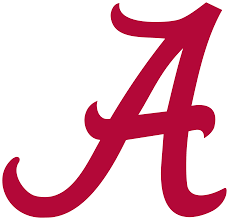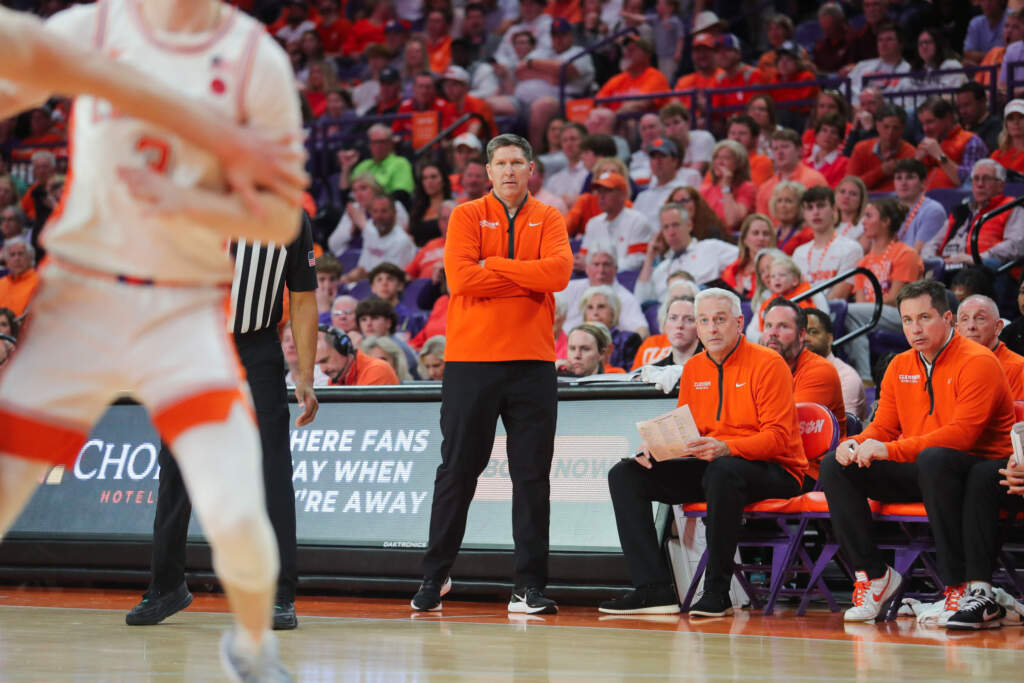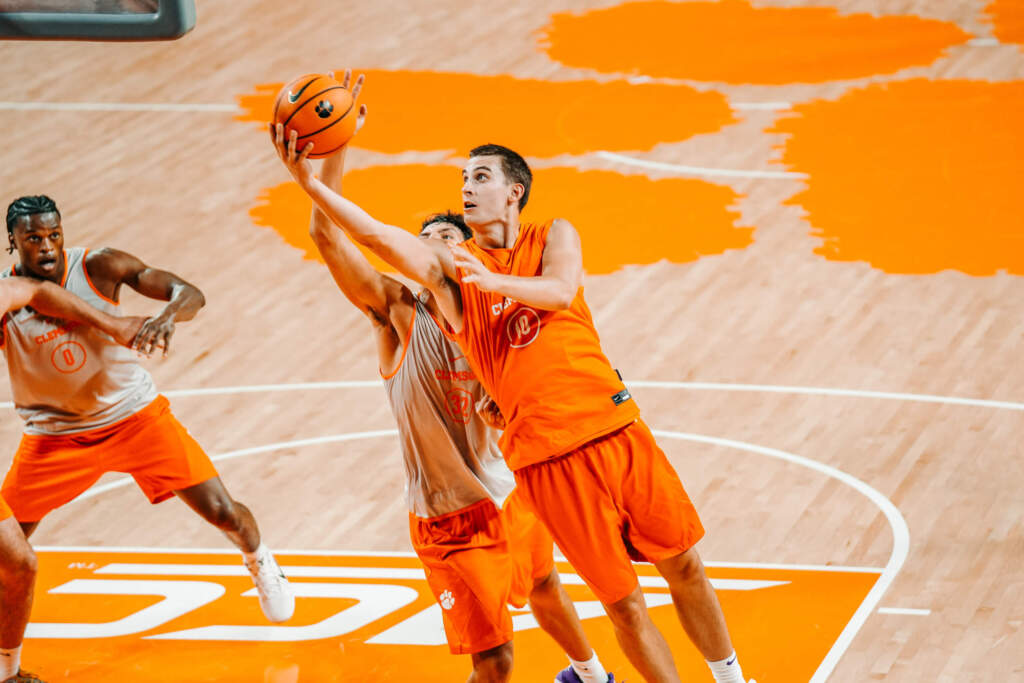Oct. 31, 2000
By Craig CvalContributing WriterThe Georgia Tech Game Program – October 28, 2000
Bobby Conrad is no stranger to tough spots.
Most Clemson fans will recall that as a senior point guard, Conrad led the Tigers to their most successful basketball season ever. The 1980 team was the first in Clemson history to reach the NCAA tournament. The Tigers fell just short of the Final Four, losing to UCLA in the West Regional Final by 11 points.
Conrad seemed to be at his best when the stakes were highest. He was instrumental in come-from-behind NCAA Tournament victories over Brigham Young and Lamar. In the regular season, Conrad made all eight free throw attempts in overtime as the Tigers upset number-one Duke. A few weeks later, he made both ends of a one-and-one opportunity with eight seconds to play, sealing a two-point win over rival South Carolina.
A Rhodes Scholar candidate, NCAA post-graduate scholarship winner and recipient of both the ACC’s James Weaver Award (top student-athlete) and Clemson’s Norris Medal (Most Outstanding Student), Conrad went on to earn his law degree from the University of Virginia. After a stint in private practice, Conrad wound up in the United State Attorney’s Office in Charlotte, eventually supervising its criminal division. In January 2000, he was named Chief of the United States Department of Justice Campaign Financing Task Force. It wasn’t long before Conrad found himself right in the middle of things once again. In June, the bright glare of national attention focused on him. That’s when it became public that Conrad had recommended that his boss, United States Attorney General Janet Reno, appoint a special counsel to investigate Vice President Al Gore’s fundraising activities during the 1996 campaign. Clemson’s former point guard was omnipresent on the nightly news programs. Reno has thus far declined to follow the recommendation.
The similarities to standing at the free throw line with victory over the number-one team in the country hanging in the balance hardly escaped Conrad.
“There are so many parallels between sports and what I’m doing now,” he said before adding a half-chuckle, “I tend to think that if you can’t reduce an idea to sports terms, it’s probably wrong.
“I was fiercely competitive and very driven as a basketball player,” Conrad said. “And I’m a very aggressive prosecutor. I want to win.” Conrad was known by Clemson fans and opponents alike as a hard-nosed player. Still standing fourth all-time among Clemson players in career assists and seventh in career steals, Conrad led the 1979-80 squad in both categories as well as charges drawn against opposing players.
Almost paradoxically, Conrad sees his great competitiveness linked to a willingness to move on once the battle is over. Twenty years later, he paints a vivid picture of the Clemson locker room after the Tigers season and his college career both ended just one game short of the NCAA Final Four in 1980.
“To this day, I can remember sitting in the locker room filled with a sense of satisfaction,” he recalled. “I knew that I had gotten everything that I could have out of my talent and my career. With all of the effort I had put into it, I couldn’t be dissatisfied.
“Somewhere along the line, I recognized that winning is getting everything you can out of your talent,” Conrad explained. “I was very disappointed that we had lost, but I was satisfied knowing that the job had been done as well as it possibly could have been done. “Basketball is important, but it’s not that important,” he said. “It’s part of a larger picture, in my case that larger picture is my faith life. I believe I was put on this earth to serve God and love my family.”
Ironically, the family Conrad has known and loved for many years might have had a very different look had he not once again demonstrated an uncanny ability to handle adverse circumstances. For the average person, bearing the hopes of more than 13,000 delirous Clemson fans on your shoulders as you shoot overtime free throws against the number-one team in the country would be the most pressure-packed situation he might face in a lifetime. Or, for most people it would seem difficult to imagine a situation with greater magnitude than sitting across a conference table from the President of the United States on Good Friday to interview him concerning his possible knowledge of a potential criminal matter.
But not for Boboby Conrad.
The stakes he dealt with in those situations were puny compared to those he faced on the day the young woman he would eventually marry at long last agreed to go on a date with him only to realize that another woman appeared at the same place at the same time, also to go on a prearranged date with the young basketball star.
Needless to say, it was not Conrad’s finest moment, nor was it the ideal start to a budding romance.
“You’d think he’d be too smart for that,” laughed Ann Conrad of her husband, a three-time Academic All-ACC selection.
The story is a source of amusement now for Bobby and Ann, who celebrated their 20th wedding anniversary in May. “I tell Ann that I married the girl who figured out what was going on,” Bobby explained, as if that type of excuse would carry the slightest bit of weight with him in court.
When the conversation turns serious again, though, there is no doubt that Conrad’s clutch performance in recovering from his blunder and winning over Ann was more important to him than any of his many heroics on the basketball court or in the courtroom.
“By far, the most rich and rewarding experience of my life has been being married to Ann for 20 years and raising our children together,” he said.
“Bobby is a man of tremendous integrity and intensity,” said Ann, “but when people who know Bobby think of him, they think of one thing, father.
“His faith is central to his life, that’s one of the things that attracted me to him. And I think his time at Clemson really helped him in that regard. He came with a strong faith, but he was a Catholic kid from Chicago. Clemson is a very friendly place and people really accepted him and befriended him and he did a lot of thinking about his faith during his years at Clemson, and a lot of people helped him.”

 Alabama
Alabama  BYU
BYU 





